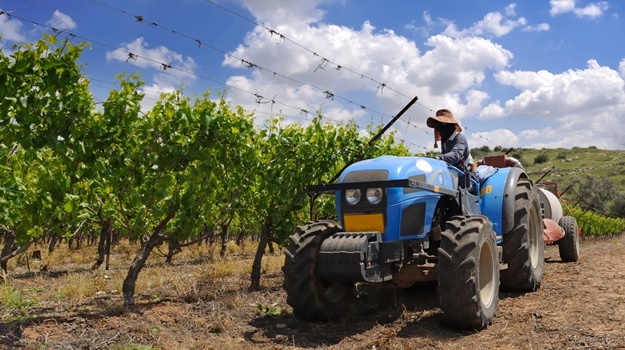
Bensen Muzamba knows the cost of water only too well. He runs a maize farm outside Harare, Zimbabwe’s capital, but, because of poor rains at the start of the season, he was forced to purchase water to irrigate his crop – something he can ill-afford.
As with many farmers across the country, Muzamba relies on rainfall and struggles if it does not come when expected.
“It’s tough when you have to buy water ... and sellers demand foreign currency,” Muzamba told the Thomson Reuters Foundation, inspecting the maize crop on his land, about 15km from Harare.
As Zimbabwe struggles with the fallout from a slow start to the rainy season, bulk suppliers that deliver water in tankers have increased their prices, citing the high cost of extracting groundwater.
With dam levels down, though recent rains helped, cities like Bulawayo have been exploring ways to curb water consumption in homes.
Meanwhile, violent clashes have erupted over shortages of fuel and a government-imposed fuel price hike, while US dollars, one of Zimbabwe’s main currencies, are hard to come by.
Groundwater is essential to ensure that farmers can grow enough crop. But some borehole owners in Harare have been selling 1 000 litres of water for about $30, twice the going rate in October last year.
The Zimbabwe National Water Authority (Zinwa) charges $10 for 1 000 litres from state-owned dams, but even that is expensive for farmers who are used to free rain.
Washington Zhakata, director of the climate change department at the ministry of lands, agriculture, water, climate and rural resettlement, said declining rainfall in the past few decades had caused Zimbabwe’s groundwater levels to shrink and shortened the time periods in which water is available.
This, he said, had affected farming nationwide.
“The distribution of rainfall across the country has been uneven, coupled with extended dryness,” Zhakata said, linking the shifts to global warming.
Average temperatures around the world have already risen about 1°C above preindustrial times, and southern Africa is expected to see drier conditions as global warming continues.
Sobona Mtisi, an independent researcher on water and climate change in Zimbabwe, said rainfall had been low, but the nation had enough groundwater stocks to meet rising demand.
Still, Zimbabwe would benefit from better methods for managing its groundwater, he added.
“It needs to be managed sustainably, through an effective and evidence-based groundwater policy,” said the UK-based Mtisi.
Tamburiro Pasipangodya, an agricultural meteorologist at the Zimbabwean meteorological services department, said despite rains having picked up this month, forecasters’ concerns persist that an El Niño weather pattern could result in below-average rainfall this season. Up until early January, most parts of the country had received less than 75% of the long-term average rainfall, and a smaller amount than the past three seasons.
The Famine Early Warning Systems Network, a provider of information and analysis on food insecurity, said seasonal rainfall was set to continue across southern Africa this week, bringing some relief from dryness, including to parts of Zimbabwe.
TURNING OFF THE TAP
As rains become more erratic, Zimbabwe is looking to irrigation to cushion its food supplies against drought.
When announcing this year’s budget in November last year, Finance Minister Mthuli Ncube allocated nearly $1 billion to the agriculture ministry to fund irrigation and borehole rehabilitation, among other measures to improve water sources for farmers.
In a bid to deal with the long-term effects of patchy rainfall, the southwestern city of Bulawayo is proposing technological interventions to cut water consumption. In the last week of December, water levels in Bulawayo’s dams dropped to 60%, from 65% in early November, Zinwa said.
The city has long turned to groundwater for relief during dry spells, but a recent council report said the municipality had failed to maintain its boreholes, compromising future water availability.
This month, Bulawayo authorities said they were looking at installing water flow regulators in homes.
According to the city’s director of engineering services, Simela Dube, the devices would be part of water management efforts to help consumers and the municipality save water.
The regulators would restrict consumption to predetermined levels decided by households, depending on how much water they needed, he told council chambers.
Residents would be able to use between 1m3 and 5m3 of water per day, compared with the current state, where they can turn on their taps at will even if they cannot pay their water bill.
However, city councillor Sikhululekile Moyo called for more consultation, saying there were concerns that the new proposal would meet with resistance from customers who previously rejected prepaid water meters.
Jacob Mafela of the Bulawayo Residents’ Association told the foundation that schemes to save water were generally welcome.
“We support all initiatives that at the end of the day benefit residents,” he said.
“It is historically known that the city faces water challenges, but we need consensus.”
Meanwhile, as El Niño-linked rainfall uncertainty continues, farmers like Muzamba, most of whom lack insurance against crop failures, are despairing.
“We will keep asking government for assistance, even though we know that the money is not there,” he said. – Thomson Reuters Foundation
TALK TO US
Do you think Africa is doing enough to sustain water supply and ensure good security? How can the government and citizens of Zimbabwe work together to find solutions? SMS us on 35697 using the keyword WATER and tell us what you think. Please include your name and province. SMSes cost R1.50. By participating, you agree to receive occasional marketing material.




 Publications
Publications
 Partners
Partners








